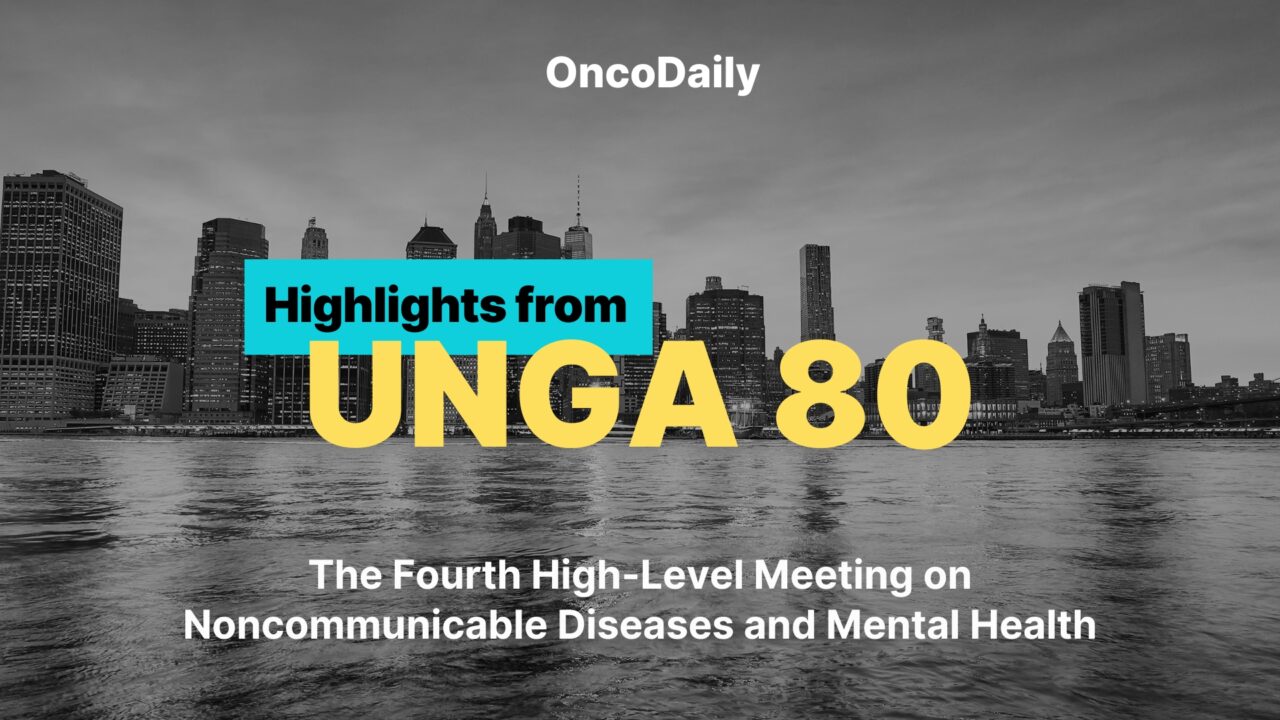The 80th United Nations General Assembly (UNGA 80) opened on 9 September 2025 at UN Headquarters in New York City, with the High-Level Week taking place in late September. Its healthcare agenda highlights the Fourth High-Level Meeting on Noncommunicable Diseases and Mental Health, alongside discussions on universal health coverage, health equity, and resilient health systems.
Here’s what leading doctors and health experts are saying about UNGA 80:
“UNGA 80 happens at a moment of global turbulence.
But one truth stands out: no nation can face today’s crises alone.
Unity, solidarity, and multilateralism remain our best hope for peace, for stability and Health For All.”
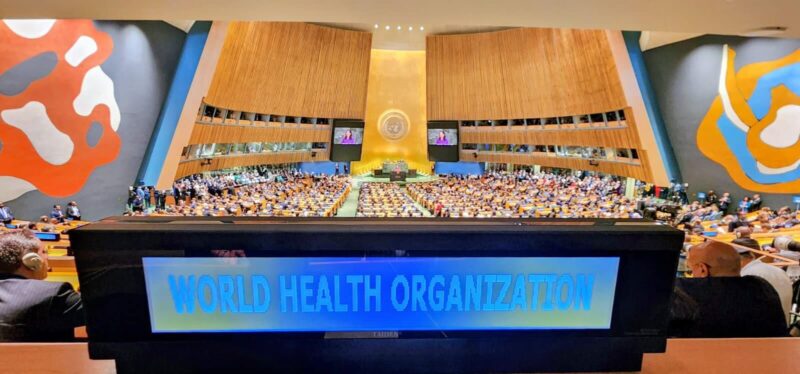
“UNGA 80 continues to be a critical platform for advancing global health priorities. Yesterday at UNGA 80, I took part in various open discussions and high-level roundtables.
Discussing how we are ‘Protecting the Mental Health of Health Workers: Resilience and Retention of the Health Future,’ which underscored the urgent need to support the frontline workforce. In LMICs, over 17% of health workers experience depression, 11% live with anxiety, and more than 30% report symptoms of PTSD, figures that demand immediate attention to protect resilience and ensure retention.
It was also an honor to represent Union for International Cancer Control (UICC) as president-elect at a session hosted by BCIU, on ‘Driving Access to Medical Imaging for Improved Outcomes in Oncology and Cardiovascular Disease in LMICs – Operationalizing the NCD Political Declaration.’
With more than 3 billion people lacking access to basic radiology services, and fewer than 25% of cancer patients in LMICs receiving adequate imaging, scaling diagnostic access is essential to early detection and survival. My 20 odd years running Medicaid Radio-diagnostics and Clinics center, continues to be an uphill task with regulatory hurdles, unstable power and economic constraints.
Both sessions reinforced the need for coordinated action, investment in people, and system-wide innovations to strengthen cancer and NCD control globally.”
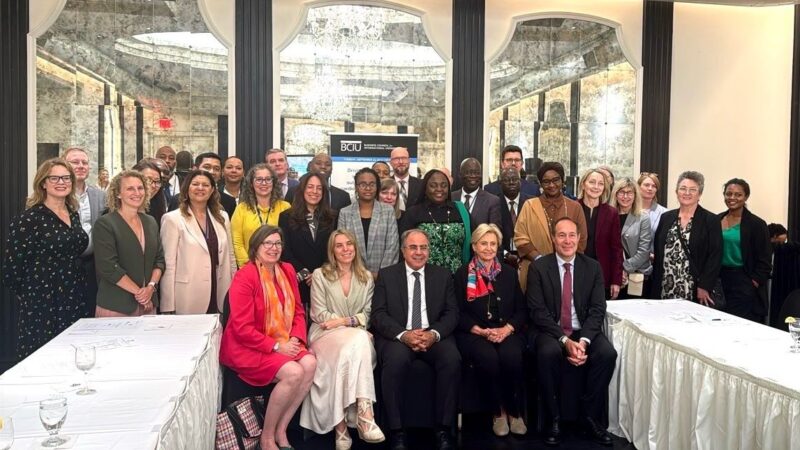
Union for International Cancer Control (UICC):
“Cancer remains a critical public health challenge, with low- and middle-income countries (LMICs) carrying a disproportionate burden – accounting for over 70% of global cancer deaths.
National Cancer Control Plans (NCCPs) represent a pivotal opportunity to build more resilient, equitable, and effective cancer care systems.
To highlight this, UICC and Bristol Myers Squibb co-hosted a side event during the UNGA 80 in New York on the importance of NCCPs in strengthening health systems – with opening remarks from UICC President Ulrika Årehed Kågström.
Special thanks to our speakers: Dr Cary Adams, Lisa Stevens, Chiara Moroni, Dorothy Keefe, Kara Magsanoc.”
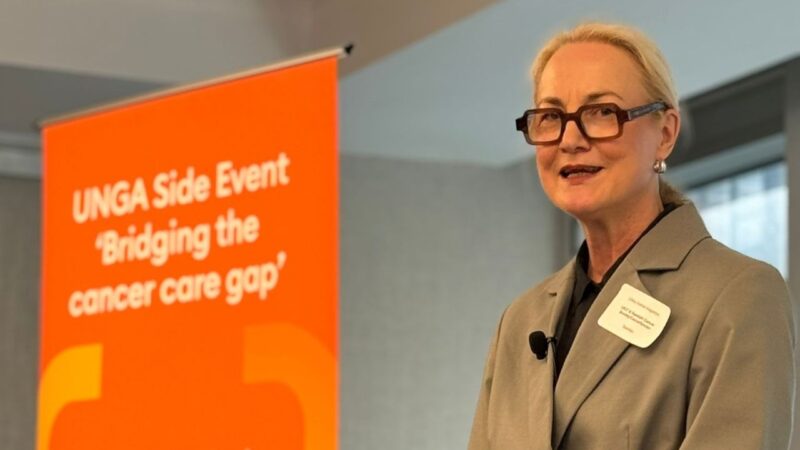
“This week I have been in New York for the United Nations General Assembly (UNGA). This is the principal decision-making body of the United Nations; each session provides an opportunity to collaborate, deliberate, and adopt resolutions on a wide range of global issues.
For the first time, childhood cancer has been included in the UN’s Political Declaration on Non-Communicable Diseases and Mental Health. This draft is the starting point for a global agreement that could shape policy, funding, and priorities for years to come. Thanks to ongoing advocacy, childhood cancer is finally on the agenda at the very highest level.
I have the honor to be here, joining leaders from across the world to talk about how we can continue to improve survival rates of children with cancer around the globe. I proudly represent the voice of PWLE (people with the lived experience) I am honored to be the voice of parents and families who have experienced childhood cancer in their lives.
Tomorrow I will be presenting at the International Society of Paediatric Oncology – SIOP side event, talking about the importance of including people with the lived experience of cancer in the processes of shaping effective cancer control programs, research and public policies.”
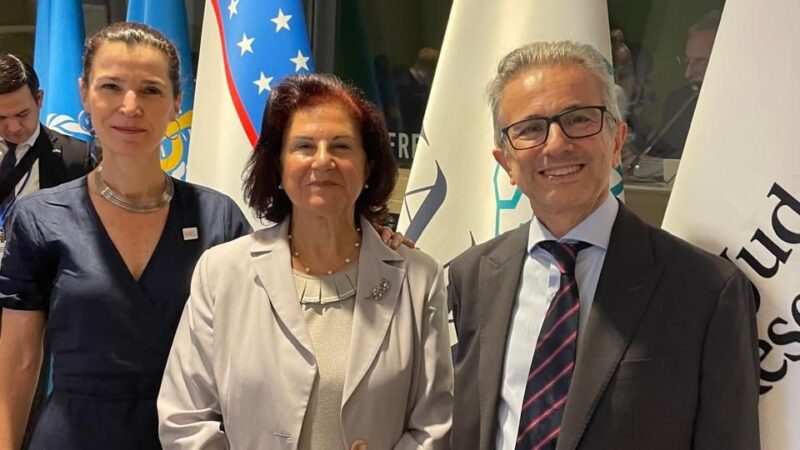
“Yesterday, New York City wasn’t showing her best weather and traffic was wild during UNGA, but the Bloomberg building was packed with enthusiastic Ministries of Health, investors, and global leaders in cancer care. Everyone was excited to be part of the GlobalCancerPlatform launch, a powerful step toward transforming cancer equity.
Focused on action, the platform aims to mobilize $1B by 2030 to expand access to early detection and treatment in low- and middle-income countries and starts with two leading causes of cancer death among women – cervical and breast cancer. It also supports diagnostic infrastructure, workforce training, and treatment capacity, helping countries build resilient and equitable cancer care systems.
As someone deeply involved in implementing cervical and breast cancer screening programs in low-income countries, I see firsthand why this matters. Cancer is becoming a silent pandemic that won’t end. By 2040, we will see 25% more new cases globally. We must act now and act fast. The Elekta Foundation stands ready to collaborate with partners and countries to strengthen early detection, expand access to care, and scale what works.
We need the urgency of this moment, and we need innovative financing to match new technologies and operational excellence. Thank you to the Bloomberg New Economy International Cancer Coalition, ASCO, and a special shout-out to Dr. Catharine Young, Ph.D. for her incredible dedication in bringing this convening to life. Seeing so many familiar faces in New York, all driven by the same purpose, was an absolute bonus.”
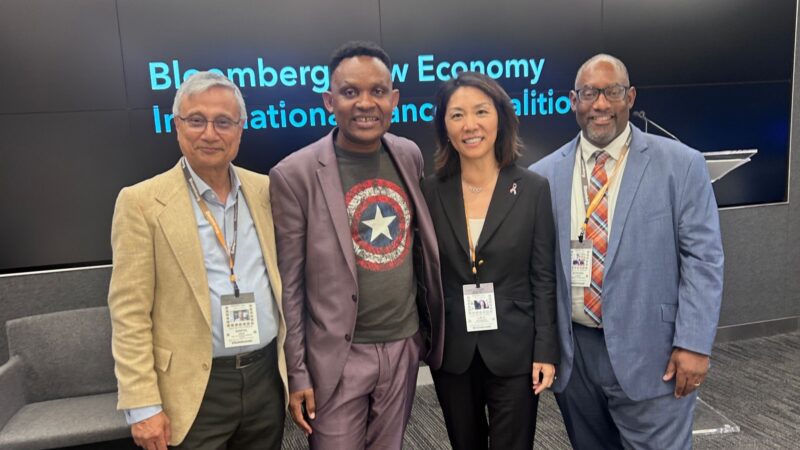
International Society of Paediatric Oncology (SIOP):
“We’re at UNGA 80!
SIOP is actively engaged at UNGA 80, where childhood cancer has, for the first time, been elevated to the highest political level through the 4th High-Level Meeting on NCDs.
Alongside partners, SIOP will co-host a side event with MSK highlighting progress under the WHO Global Initiative for Childhood Cancer and next steps.”
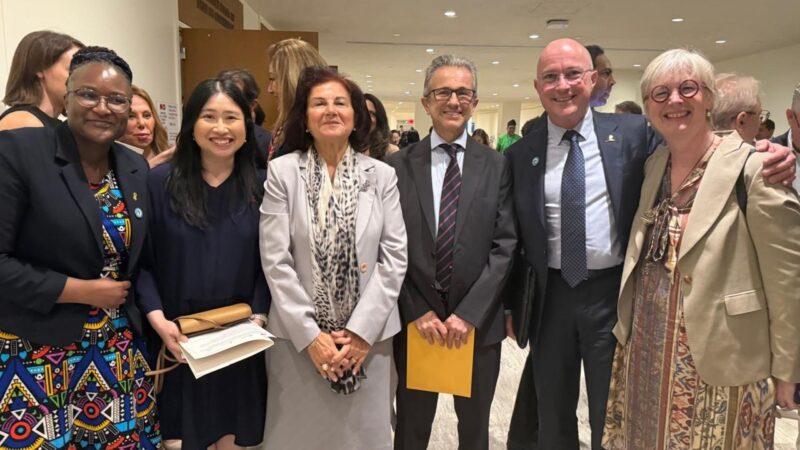
“I have the pleasure of being in New York this week, where the UN General Assembly (UNGA 80) is convening. One of the goals for the week is to shape a new vision for the prevention and control of noncommunicable diseases (NCDs) – including cardiovascular disease, cancers, diabetes, and chronic respiratory diseases.
With a rapidly aging global population, the stakes are rising. Yet innovations like proteomics and AI will materially improve how we prevent, detect, and treat these conditions – benefiting millions of patients worldwide.
Looking forward to pairing policy with innovation and helping scale impact!”
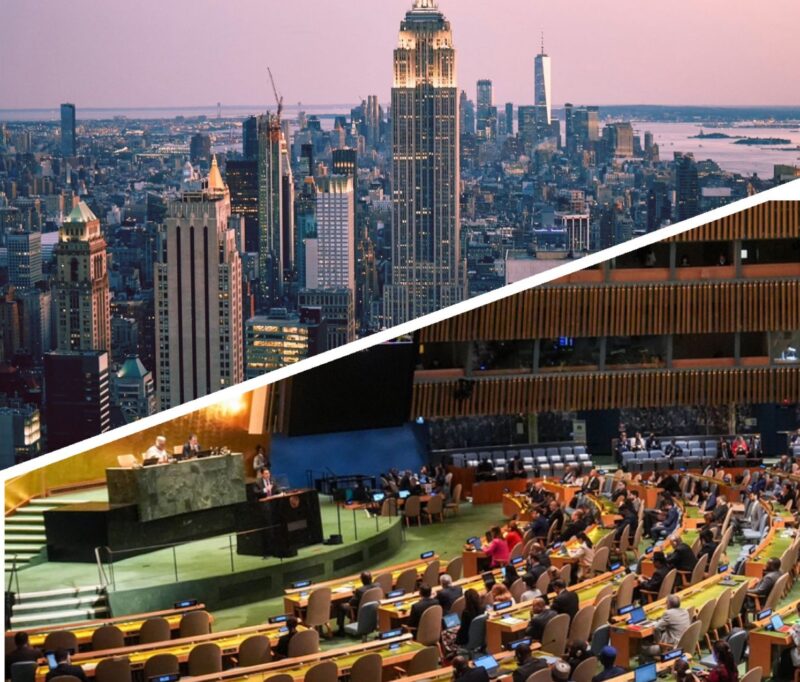
Global Mental Health Action Network:
“Our members have been calling for mental health to be recognised as a political priority, and today at UNGA 80, for the first time, Heads of State come together to discuss mental health, making the bold policy commitments in the Political Declaration that we as a mental health community called for.
This involves:
- Integrating mental and physical health services to increase the reach of care and deliver savings
- Providing better mental health support for young people
- Reducing suicide rates
- Modernising mental health systems to move away from mental health institutions, so protecting more people from harm and enabling them to seek help
- Addressing the social determinants of mental health.
We celebrate the political commitment, and, above all, we celebrate the dozens of voices from the GMHAN community around the world that have worked tirelessly over the past year to make better mental health a core ambition of this UN Political Declaration. Some GMHAN members are present in the room, ensuring that the diverse voices of our global community continue to be represented in shaping this milestone.
We know this is just the beginning. Commitments must be matched with accountability, multi-stakeholder action, and the leadership of people with lived experience, so that real change reaches communities everywhere.”
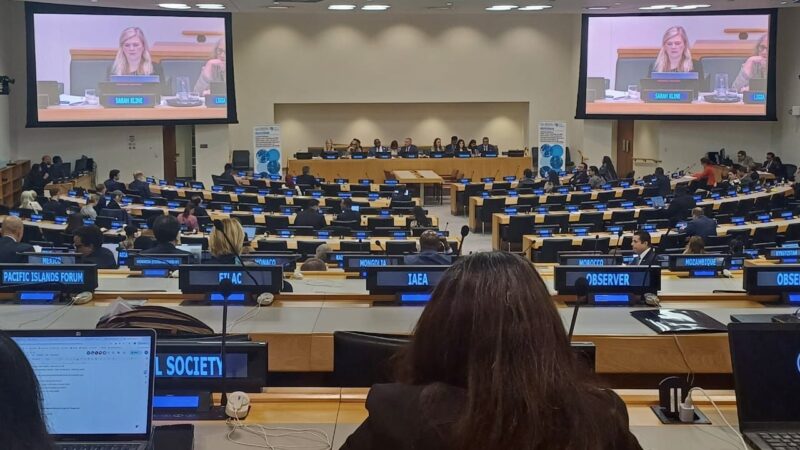
“My first UNGA this week was a whirlwind – inspiring but also eye-opening as to the challenge ahead.
It may sound like a cliché, but the experience of connecting with so many passionate individuals united by a common goal – to address the burden of non-communicable diseases (NCDs) – has been nothing short of inspiring. I left New York with a renewed sense of purpose, and I believe that was true for everyone I met over the last few days.
I also have to say it was eye-opening because the issues we discussed are so profound and require us to do so much more.
If we don’t prioritize prevention and early interventions, we risk paying a hefty price on both individual and societal levels in the coming decades. To achieve success, we must adopt a person-centred approach and recognize the vital connections between obesity, diabetes, cardiovascular health, and mental health.
That’s why UNGA 80 was so important. Collaboration between the public and private sectors is essential and initiatives like Cities for Better Health and our partnership with UNICEF highlight the tremendous potential of cross-sector collaborations. Working together is key in preventing chronic diseases for generations to come.
While the challenges in global health can feel daunting, sharing insights from our initiatives and learning from others gives me hope. We’ve made significant strides, but we must amplify the successful strategies and support countries in bolstering their local health systems.
I want to offer a big thank you to Sophie Løhde, Helle Meinertz, Michael Anderson CB, MedAccess, Susanne Dahl, Kitty van der Heijden, UNICEF, Breakthrough T1D, Katie Dain, NCD Alliance, World Diabetes Foundation, Mads Krogsgaard Thomsen, Novo Nordisk Foundation, Femi Oke, James Reid, MPA, Kimberly Green, Herb Riband, Denmark In New York, Access Accelerated and many more remarkable people and organisations I’ve met and held discussions with during my time in New York.
I hope our collaboration will continue over the coming year as well – UNGA was a great catalyst, but the real work happens now.”
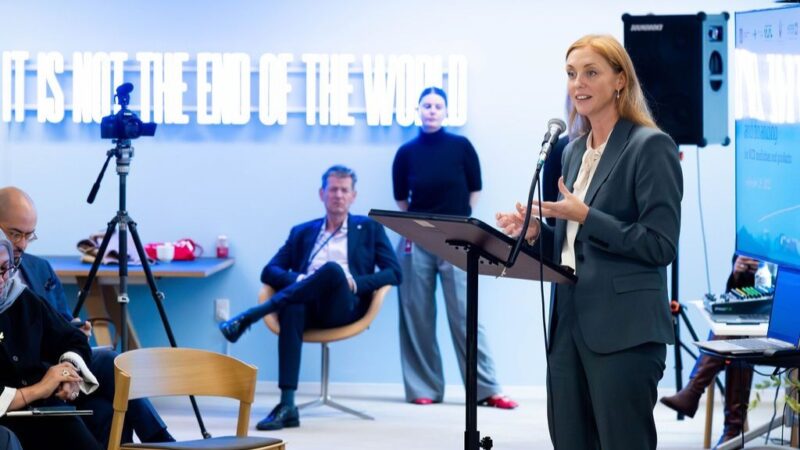
“At the sidelines of UNGA 80, I joined leaders at The Tipping Point: A New Era for Global Health Leadership.
I delivered the message that innovative financing must be anchored in strong governance of health systems, so every resource delivers resilience, equity and real impact for our people.
This is how Africa will move from dependency to true health sovereignty and Universal Health Coverage.”
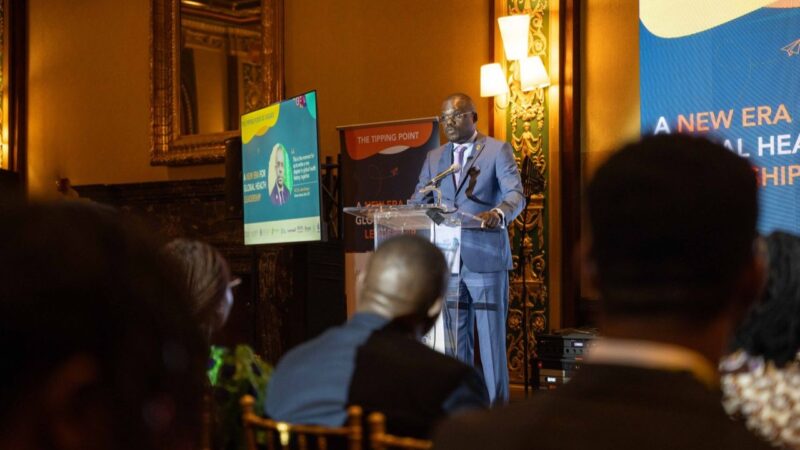
“Fostering dialogue and addressing the global burden of non-communicable diseases (NCDs) in front of heads of governments and states was a powerful opportunity to advocate for patients at UNGA 80.
Our heart, kidneys, liver, and metabolism are deeply interconnected. When one organ falters, the others are at risk. That’s why we must rethink healthcare: addressing these conditions together through early detection and integrated care can save lives, reduce hospitalizations, and lower treatment costs.
At Boehringer Ingelheim, we’re driving systemic change – working with partners across sectors to ensure kidney and liver diseases are prioritized in national strategies for cardiovascular, renal, and metabolic health.”
“Honored to take part in key UNGA events advancing global action on NCDs, tobacco control, Health Taxes, and Digital Health.
At the high-level breakfast on health taxes – with ministers and heads of state in the room – the message was clear: fiscal policies save lives, protect the health of future generations, and raise revenue. Meanwhile, Digital innovation is transforming NCD prevention and care. I leave NYC energised and inspired by the countries that I met and their stories of success and grateful to work with incredible partners.”
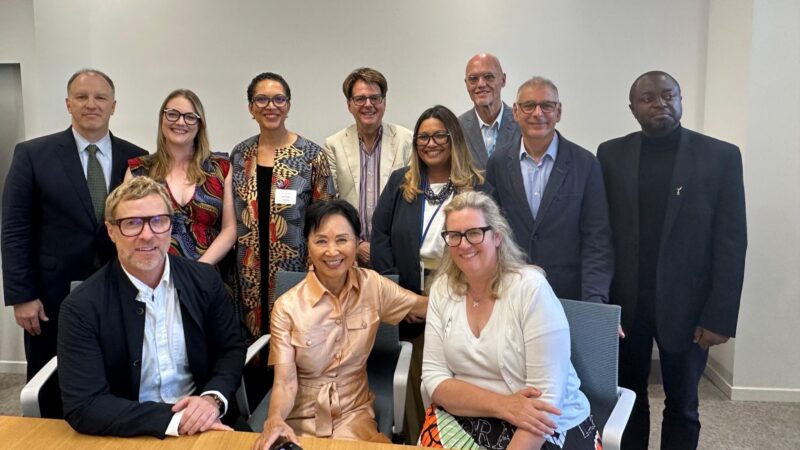
“Wonderful to attend UNGA 80 side events this week. One was led by the United Nations Population Fund (UNFPA) and Bayer, where leaders around the world (translators included) discussed the role of the private sector in advancing women’s health and well-being, with a spotlight on menopause.
Sofiat Akinola, an expert in global health, said it best: Menopause has a huge spotlight on it right now so let’s use this momentum to make lasting change. In two to three years, we will be onto another topic. Let’s not wait til the light dims.
While many of us in the US see nonstop celebrity events, let’s not forget two things:
- Embedding change takes time, money, and people working together.
- Just because something is in the news or someone has hundreds of thousands of followers does not mean we’ve reached the ultimate goal. At the same time, we need this momentum to keep the spotlight on so that change will happen.
And a big thank you to Springboard Enterprises for your support of women-led companies!!
What do you think we need for real change to happen, and who’s doing it well right now?”
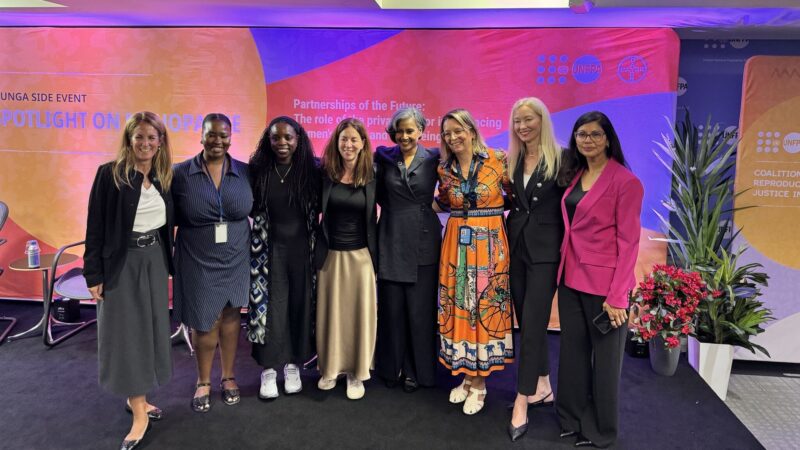
“This past week, I had the privilege of joining our company delegation at the UN General Assembly – an experience that reminded me how meaningful it is to continue serving the people, now through the lens of the people and patients we strive to support every day.
One of the highlights was organizing and partnering with the IHE – The Swedish Institute for Health Economics alongside major women’s cancer advocacy and scientific organizations – including the ABC Global Alliance, International Gynecologic Cancer Society, World Ovarian Cancer Coalition, among others – for the launch of “Bridging the Gap in Women’s Cancer Care: A Global Policy Report on Disparities, Innovations and Solutions.”
This report sheds light on urgent inequities while also offering a roadmap of solutions to make women’s cancer care more equitable and accessible worldwide. Being part of this launch was not only an honor but also a reminder of why we do what we do.
Finally, I want to thank my colleagues in Merck’s Global Public Policy team for the opportunity to contribute to this important team and for showing every day what it means to combine science, advocacy, and purpose in service of patients.”
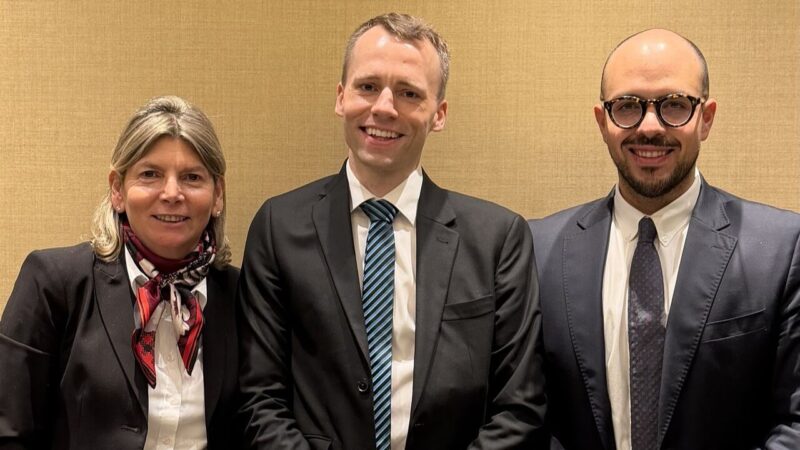
“As a member of the WHO Steering Committee on Meaningful Engagement, I have spent the past 18 months working with lived experience advocates worldwide to shape the UN Political Declaration on NCDs and mental health.
Yesterday, at the Fourth UN High Level Meeting on NCDs and Mental Health, dozens of presidents, prime ministers, and health ministers, speaking for the world’s largest blocs of countries, hailed the draft and urged its immediate approval.
And yet, in a blustery statement, U.S. Health and Human Services Secretary Robert F. Kennedy Jr. rejected it, a lawyer with no medical background or degree, objecting to proven measures like taxes on unhealthy products while claiming it did not go far enough on other issues. His veto means the declaration, which was to be adopted by consensus, must now go to a formal UNGA vote.
As a U.S. citizen, I am angry and ashamed. My country has undermined a historic opportunity to enshrine measurable global targets on tobacco, hypertension, and mental health, policies grounded in evidence, equity, and accountability. This isn’t leadership. It is a moral and ethical failure.
But we will not be silenced. The declaration will move forward, and the global advocacy community will continue pressing for meaningful engagement and for citizens living with NCDs to be at the center of the policies that shape their lives.”
Shobha S. Krishnan:
“I had the honor of attending several inspiring events during the 80th UN General Assembly in September 2025, themed ‘Better Together: 80 years and more for peace, development, and human rights.’
1. Dasra/India Philanthropy Forum
Rooted in ‘India for the World, and the World for India,’ the forum highlighted India’s growing role as a hub for social innovation and the power of diaspora giving. Two things stood out: the Indian diaspora totals 35 million people with a $1 trillion economy, and India Giving Day has grown from $1M to nearly $9M in just three years! I left the event encouraged by the incredible people committed to India’s prosperity and the upliftment of marginalized communities.
2. ASCO/Bloomberg High-Level Event
The all-energetic Catharine Young coordinated panels on Global Cancer Financing with ministers, global health leaders, innovators, and survivors. The ambitious goal: raise $1 billion by 2030 to accelerate earlier cancer diagnosis – when treatment is most effective, survival rates are highest, and the potential for lives saved is greatest.
3. UICC Event: Bridging the Cancer Gap
We discussed advancing national cancer control plans, which once again underscored the critical role of funding necessary in achieving these objectives.
My key takeaway from the week: There’s enormous untapped potential in wealth around the world – from foundations to everyday people and the next generation eager to give back. Our challenge is to build trust, craft compelling cases, and design creative ways to engage them. Investing in the process of funding itself – researching and testing new approaches – will unlock resources and amplify impact for causes that truly matter.
Investing in smarter ways to fund initiatives isn’t just necessary – it’s game-changing.”
You can find more posts featuring UNGA 80 on OncoDaily.


